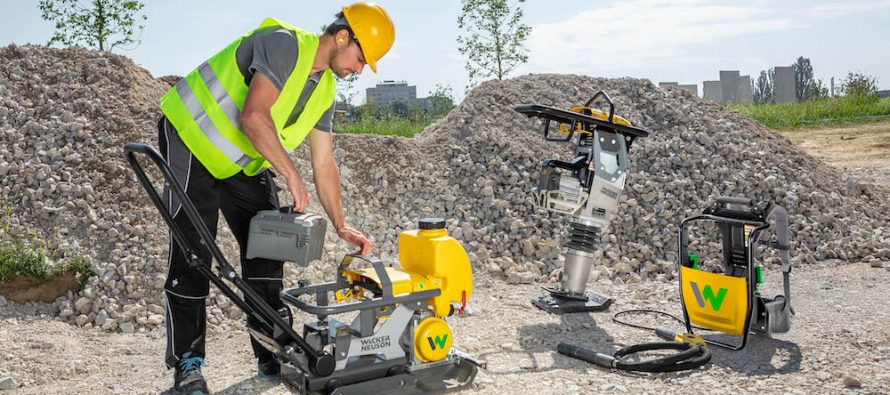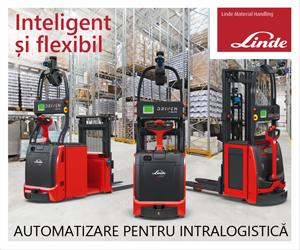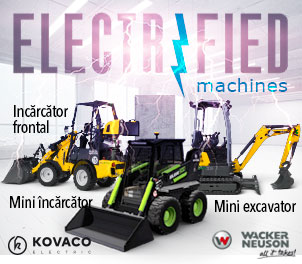Wacker Neuson shares battery platform with Bomag

Related Articles
One battery, countless machines: The “one for all” approach is taking on a whole new meaning at Wacker Neuson. From fall 2021, the modular, rechargeable construction equipment battery developed by Wacker Neuson will also be compatible with equipment made by the company’s cooperation partner Bomag. Customers will benefit from simplified construction site logistics and cost savings when they invest in battery-powered devices, creating strong momentum for the wider adoption of emissions-free equipment on construction sites.
When developing its rechargeable battery, Wacker Neuson embraced the “one for all” mindset right from the start. This approach enables users to operate different construction equipment products such as rammers and vibratory plates with just one battery. It means that customers only have to invest in one rechargeable battery and charger. The approach will yield further potential for synergies and savings in the future as the batteries will also be compatible with construction equipment manufactured by Bomag.
 Making this battery technology available to a competitor in the soil compaction equipment market does not present Wacker Neuson with a conflict of interest: “We firmly believe that many more construction sites could be operated without producing any direct exhaust emissions, especially in urban areas,” explains Stefan Pfetsch, Managing Director of the Wacker Neuson production site in Reichertshofen, the company’s competence center for compaction. “Our interchangeable battery has the potential to power a wide range of construction equipment. By enabling another manufacturer to use our battery, we are further accelerating the adoption of emissions-free construction equipment and underscoring Wacker Neuson’s commitment to fast-tracking carbon reductions.”
Making this battery technology available to a competitor in the soil compaction equipment market does not present Wacker Neuson with a conflict of interest: “We firmly believe that many more construction sites could be operated without producing any direct exhaust emissions, especially in urban areas,” explains Stefan Pfetsch, Managing Director of the Wacker Neuson production site in Reichertshofen, the company’s competence center for compaction. “Our interchangeable battery has the potential to power a wide range of construction equipment. By enabling another manufacturer to use our battery, we are further accelerating the adoption of emissions-free construction equipment and underscoring Wacker Neuson’s commitment to fast-tracking carbon reductions.”
Innovation leader
Wacker Neuson’s zero-emission portfolio includes rammers, vibratory plates, and an internal vibrator system as well as electrically powered excavators, wheel and track dumpers, and wheel loaders. “Already today, a complete urban construction site can be operated without any direct emissions with this portfolio. Up to 93 percent of CO2 emissions can be saved compared to a conventional product of the same class. As such, our zero-emission range is making a valuable contribution to achieving climate goals,” adds Alexander Greschner, CSO of the Wacker Neuson Group. “These products also deliver clear cost benefits: In some countries, for example, they enable customers to save on CO2 tax. Other governments proactively support the use of electric machines through incentives or by favoring contractors who promise lower CO2 emissions in tenders.”
 Wacker Neuson presented the world’s first battery-powered rammer back in 2014, marking the first product in its zero-emission range. Today, the portfolio has grown to include seven construction equipment products (rammers, vibratory plates and internal vibrators), all of which can be powered by the same battery. To this day, Wacker Neuson offers the market’s widest portfolio of battery-powered construction equipment for professional users and further products will be added to this range in the near future.
Wacker Neuson presented the world’s first battery-powered rammer back in 2014, marking the first product in its zero-emission range. Today, the portfolio has grown to include seven construction equipment products (rammers, vibratory plates and internal vibrators), all of which can be powered by the same battery. To this day, Wacker Neuson offers the market’s widest portfolio of battery-powered construction equipment for professional users and further products will be added to this range in the near future.
Making construction site logistics easier
Wacker Neuson currently offers two interchangeable batteries for construction equipment with power capacities of 1,000 Wh and 1,400 Wh. No comparable interchangeable batteries in this power class are available on the market to date. One standardized battery for machines from different vendors simplifies work on construction sites in a number of ways. Customers only have to organize and transport a single system instead of multiple batteries and chargers. User uncertainty regarding battery/equipment compatibility is a thing of the past. A uniform charging structure and rapid setup of a charging management system make day-to-day life on construction sites easier and increase acceptance levels for this technology. “We are committed to offering practical, strictly customer-centric solutions. Our customers appreciate the freedom to use products from different manufacturers, and they also expect this freedom with battery-powered equipment,” says Stefan Pfetsch. “We are now delivering on this need while also driving more widespread adoption of future-proof electric products.”






